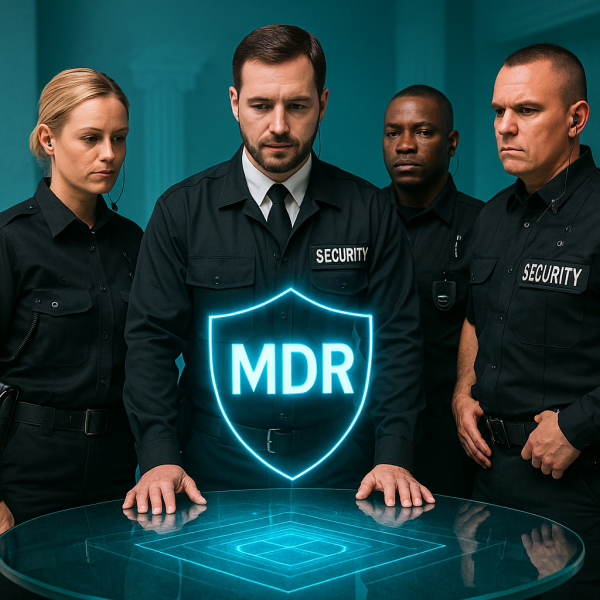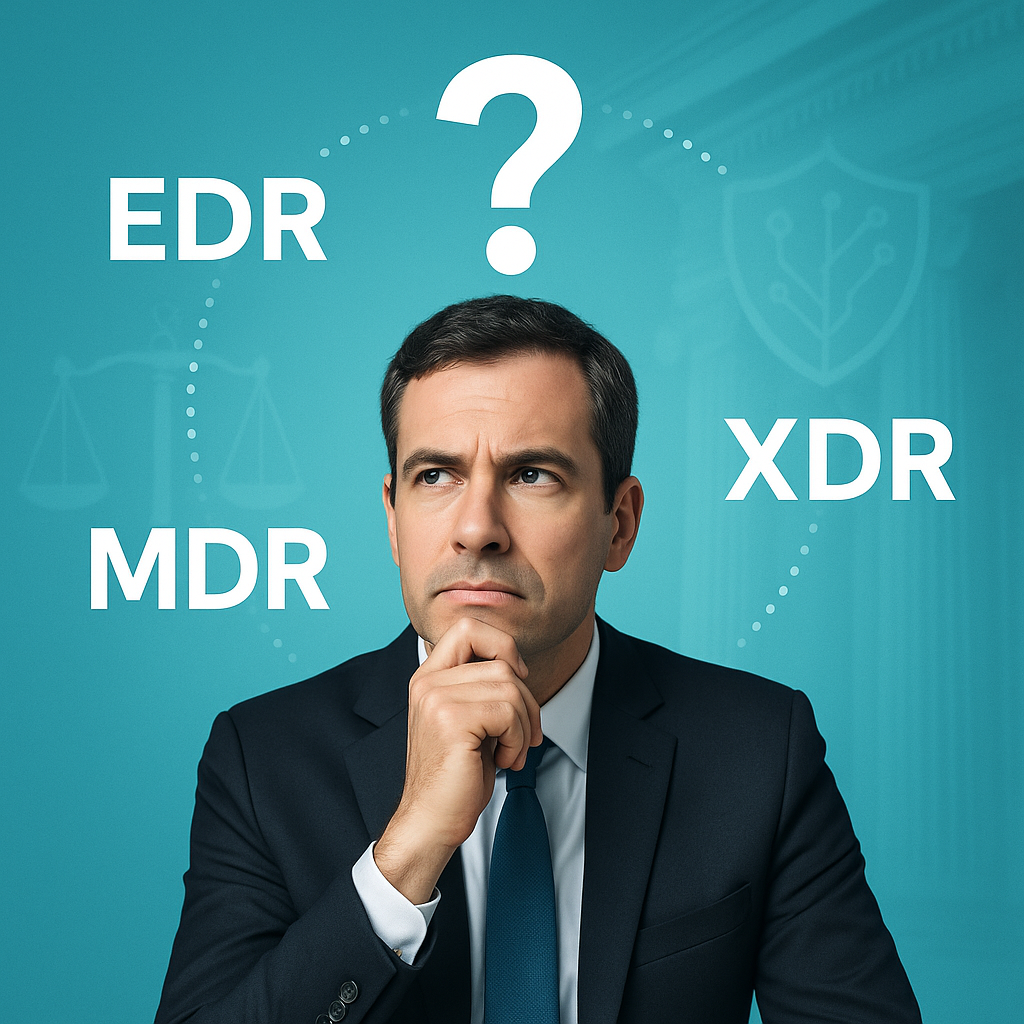Exhibit A: EDR (Endpoint Detection and Response)
 What it is: EDR is like your firm’s in-house counsel for your computers and devices. It monitors every “endpoint” (think laptops, phones, servers) for suspicious behavior and takes immediate action when something looks off.
What it is: EDR is like your firm’s in-house counsel for your computers and devices. It monitors every “endpoint” (think laptops, phones, servers) for suspicious behavior and takes immediate action when something looks off.
Legal analogy: Imagine EDR as your paralegal who never sleeps. They watch over each associate’s desk, filing, emailing, and researching—and if something shady pops up, they flag it before it snowballs into a malpractice claim.
In short: EDR protects each device, reacts fast, and keeps evidence for the investigation later.
Exhibit B: XDR (Extended Detection and Response)
 What it is: XDR takes EDR’s powers and expands them across your entire digital practice—devices, emails, networks, cloud systems, the works.
What it is: XDR takes EDR’s powers and expands them across your entire digital practice—devices, emails, networks, cloud systems, the works.
Legal analogy: If EDR is your paralegal watching one desk, XDR is your managing partner with a panoramic view of the entire firm. They can see connections between the litigation team’s emails, the finance system’s activity, and the managing partner’s calendar. When they spot an inconsistency, they don’t just flag it—they understand where it came from and who’s involved.
In short: XDR gives you the big picture. It’s not just about catching bad behavior on one device; it’s about connecting the dots across the whole office.
Exhibit C: MDR (Managed Detection and Response)
 What it is: MDR adds human expertise to the mix. It’s a fully staffed security team that monitors your environment 24/7, analyzes alerts, and responds to threats—so you don’t have to.
What it is: MDR adds human expertise to the mix. It’s a fully staffed security team that monitors your environment 24/7, analyzes alerts, and responds to threats—so you don’t have to.
Legal analogy: MDR is like having a full-time external counsel or a crisis management firm on retainer. When an incident occurs, they don’t just advise—they act. They draft the motion, file the injunction, and handle the courtroom showdown while you focus on your clients.
In short: MDR gives you people and technology, delivering top-tier defense without hiring an entire in-house cybersecurity department.
So, Which Defense Should You Choose?
- EDR: Perfect if you want focused, on-device security and already have an IT team that can interpret alerts.
- XDR: Ideal if you want your systems to talk to each other and spot coordinated attacks.
- MDR: Best if you want professionals to monitor, investigate, and respond around the clock.
Or, think of it like building your trial team:
- EDR is your first-year associate taking diligent notes.
- XDR is your senior partner who sees the whole strategy.
- MDR is your trial consultant, investigator, and co-counsel all rolled into one.
The Closing Argument
 Every firm needs protection that fits its size, risk tolerance, and client obligations. The question isn’t if you’ll need advanced security—it’s which version of it will make your digital practice bulletproof.
Every firm needs protection that fits its size, risk tolerance, and client obligations. The question isn’t if you’ll need advanced security—it’s which version of it will make your digital practice bulletproof.
So, what kind of defense team do you want? The tireless paralegal, the all-seeing partner, or the round-the-clock counsel?
Call 2b1 Inc. today at (415) 284-2221 or fill out the form below to find out which cybersecurity strategy best defends your firm’s future.

